Signs of stomach cancer in women and men, treatment
Stomach cancer is a malignant neoformation of epithelial cells of the gastric mucosa. It is in top-10 among the most common types of cancer that are more frequent than others. Treating stomach cancer at early stages can help to increase the life span of patients.
Types and classification of stomach cancer
The disease can be characterized by different signs.
- polypoid cancer is a single tumor without carcinomelcosis;
- diffuse infiltrative cancer (also called scirrhus), when a deep invasion into the gastric wall is observed;
- carcinoma with partial carcinomelcosis – a tumor grows in the deep layers of the stomach;
- ulcerated carcinoma (or cancer ulcer) is a tumor in the form of a plate with ulcerations). The manifestations of stomach cancer with this type of pathology are similar to the symptoms of an ulcer.
- antrum and pyloric section (closer to the exit from the stomach);
- body of stomach;
- cardia (passage from the stomach to the esophagus).
- Tx – it was impossible to assess the tumor;
- T0 – there are no signs of a primary tumor;
- Tis – intraepithelial tumor without the invasion in the basic membrane and mucosa;
- T1 – a tumor adheres to mucous or submucous layers of the gastric wall;
- T2 – a tumor adheres to the subserous layer without the invasion into the visceral peritoneum and other organs;
- T3 – a tumor adheres to the subserous layer without the invasion into the visceral peritoneum;
- T4 – a tumor adheres to the serous coat and/or adjacent organs;
- Nx – it was impossible to assess the lymph nodes;
- N0 – there are no metastases to the lymph nodes;
- N1, N2, N3, N3a, N3b – metastases are observed in 1–2, 3–6, 7, 7–15, 16 and more lymph nodes;
- M0 – there are no distant metastases;
- M1 – there are distant metastases.
You will find more detailed information on the consequences of stomach cancer at its different stages (for example, what is the life expectancy for the patient with stage IV stomach cancer) at our website.
Causes of the disease
The immediate causes of stomach cancer are still not known. The factors contributing to the development of this disease are identified:
- infecting with Helicobacter Pylori;
- gastric ulcer;
- smoking (especially in heavy smokers);
- eating disorders;
- uncontrolled medication intake;
- bad ecological situation;
- lack of ascorbic acid;
- stomach polyps (transitioning into cancer);
- genetic predisposition.
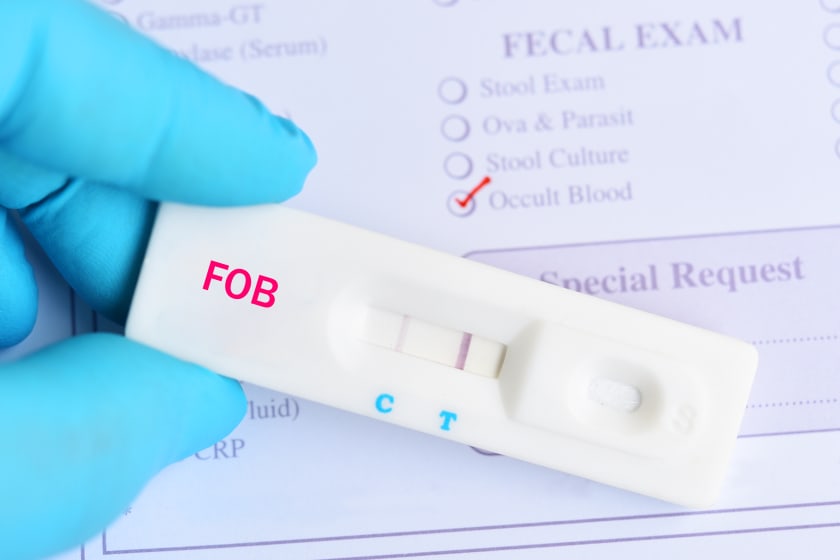
Manifestations of stomach cancer
The symptoms of the pathology can be early and late ones. The severity of signs of stomach cancer in women and men depends on the stage of its development.
- stitch in the patient’s side;
- nausea and vomiting;
- aversion to meat dishes;
- abdominal fullness;
- appetite deterioration;
- body weight loss.
- hemorrhages (as the tumor is decomposing). The process is manifested with tarry stool and vomiting that looks like coffee grounds;
- tremendous weight loss up to asthenia;
- when adhering into the pancreas – girdle pains, into the large intestine – rumbling in the abdomen and abdominal distention, into the diaphragm – "heart" pains, etc.
Complications
It can take several months to several years between the first symptoms of stomach cancer and the signs of complications. The most dangerous complications of stomach cancer are:
- adhering to adjacent organs;
- with the decomposition of a tumor, the formation of a defect in the gastric wall and the development of peritonitis (inflammation of the peritoneum due to ingestion of gastric material);
- gastrointestinal hemorrhage, if cancer frets a vessel;
- metastatic spreading, which is the transfer of tumor cells with the flow of blood or lymph to other organs and tissues.

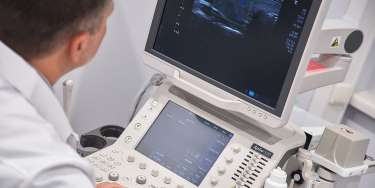
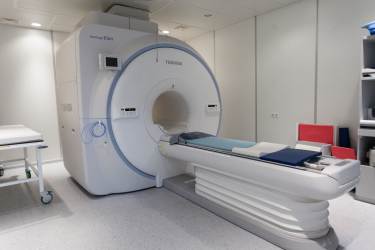
Diagnostics
A number of instrumental and laboratory methods are used to diagnose stomach cancer.
The most informative instrumental diagnostic techniques are:
- gastroscopy, when a gastroscope (a type of endoscope, a flexible probe with built-in optics) is inserted into the stomach being examined for the presence of a tumor (delete the marked part). During gastroscopy, a biopsy is performed, that is pinching off tissue fragments in suspicious areas of the gastric wall, followed by the examination under a microscope;
- contrast-enhanced computed tomography of chest, abdomen and small pelvis to assess the stage of the disease.
- contrast X-ray radiography, when a patient takes barium sulfate, then an X-ray image is taken, which, on the basis of contrasting barium sulfate, helps to identify a tumor, to assess its pattern and changes in the motility (movements) of the gastric wall; (delete the marked part);
- laparoscopy, when a laparoscope is inserted into the abdominal wall through an incision and the abdominal cavity is examined for the presence of metastatic lesions of the peritoneum, liver, and the assessment of the primary tumor and lymph nodes is performed;
Additional laboratory methods in the diagnostics of gastric cancer are:
- clinical blood analysis – ESR increases, the number of erythrocytes and hemoglobin decreases when bleeding;
- identification of tumor markers CA 72-4, CEA, which are specific compounds that appear in the blood during the development of a malignant tumor;
- microscopic examination of bioptate.
Diagnostics at Dobrobut in more detail

Treatment
Treatment methods for stomach cancer are as follows: surgical – stomach resection (gastrectomy) or subtotal stomach resection with the removal of regional lymph nodes, and chemical therapy. As a rule, treatment for stomach cancer is combined (a combination of surgery and chemical therapy).
Types of surgeries:
- gastrectomy – total stomach resection;
- stomach resection – resection of a part of the stomach.
Prevention
There are no specific preventive measures for stomach cancer. Rejection of bad habits, rational balanced nutrition, medical examinations by a gastroenterologist even in the absence of complaints, performing gastroscopy after 30 years in case of stomach cancer of close relatives, as well as in the presence of symptoms and indications (determined by a gastroenterologist or a family doctor) treating Helicobacter Pylori infection will help to reduce its risk.
Article author - Kristina Zadoroznaya, M.D.
Publication date: 29.07.2020
Read more about oncology at Dobrobut
Service packages
Our advantages
ISO certificates
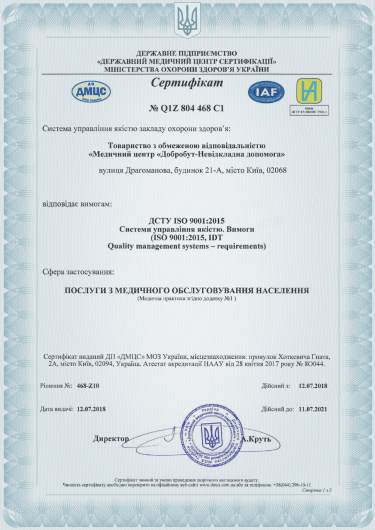
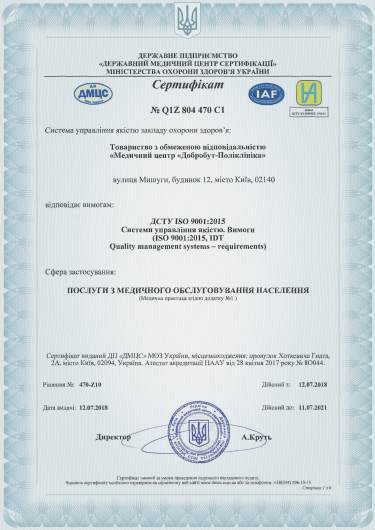
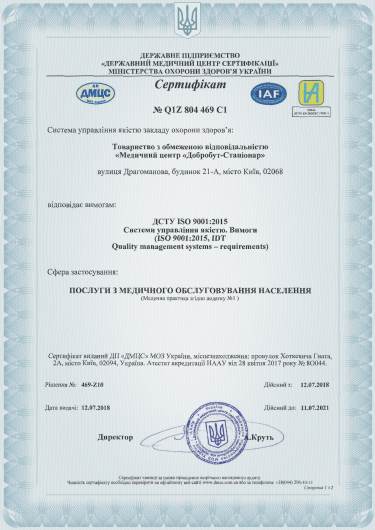
Accreditation certificates
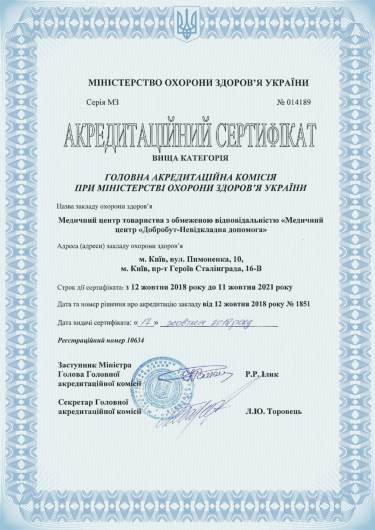
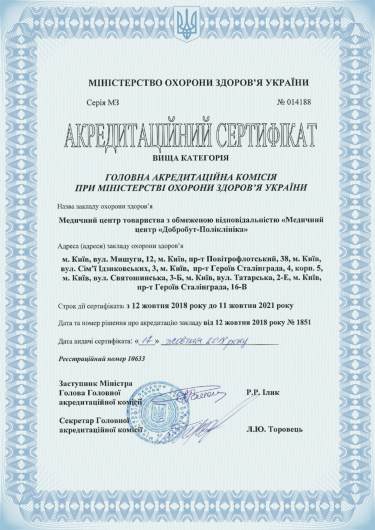
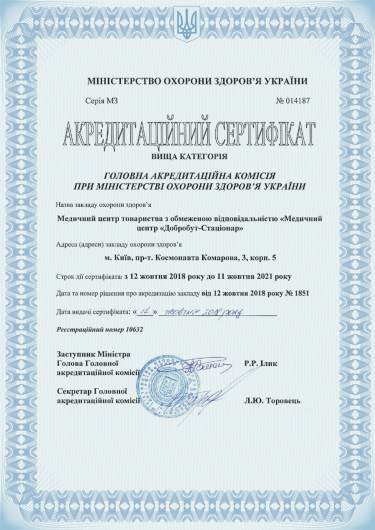
Medical practice licenses
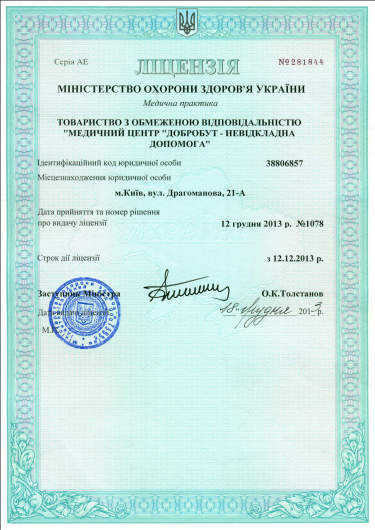
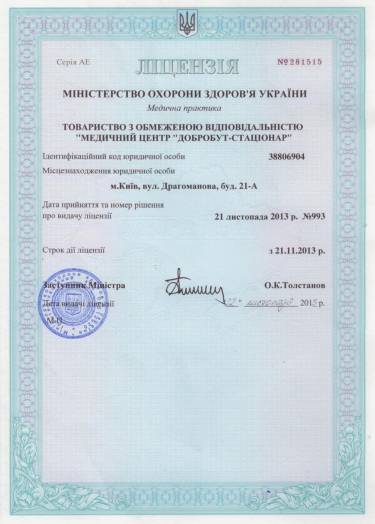
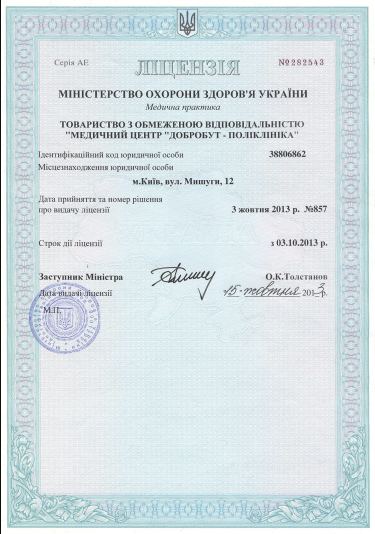







%402x.png)
%402x.png)
